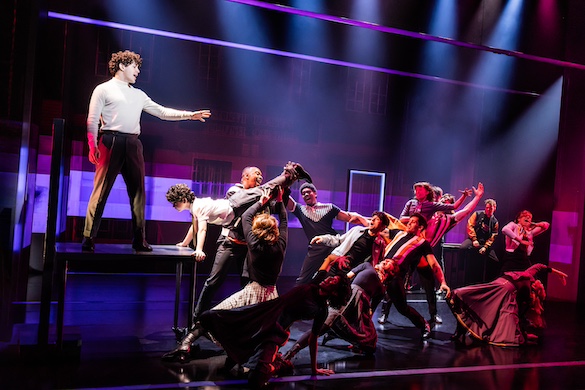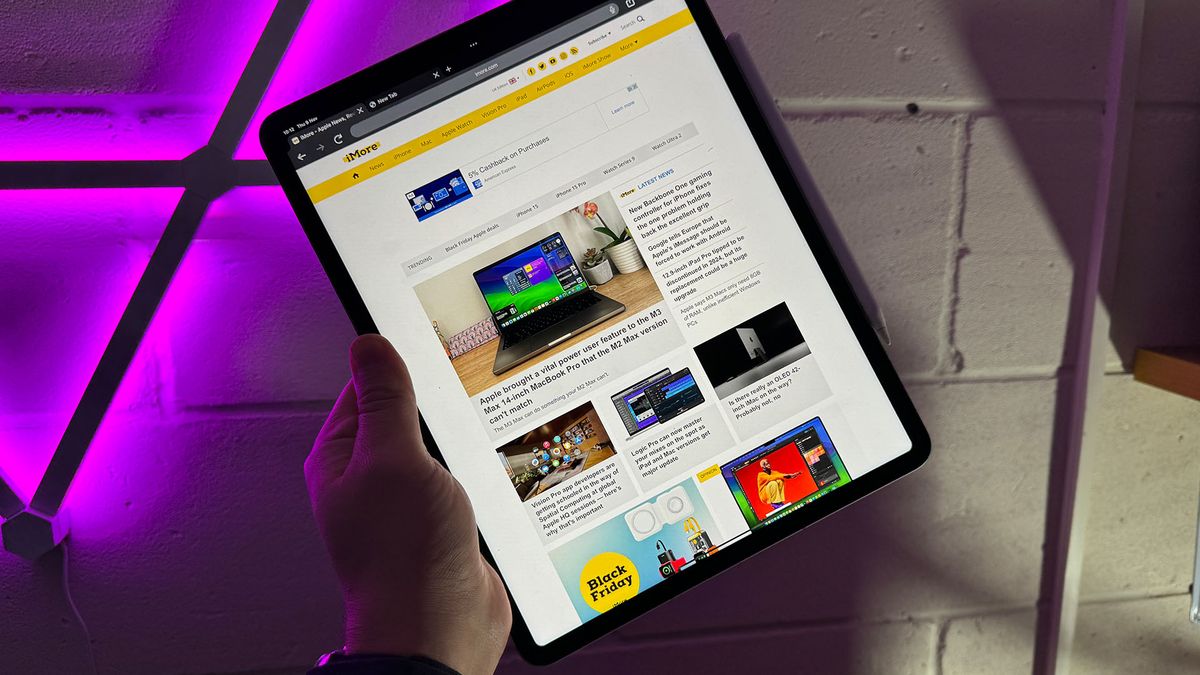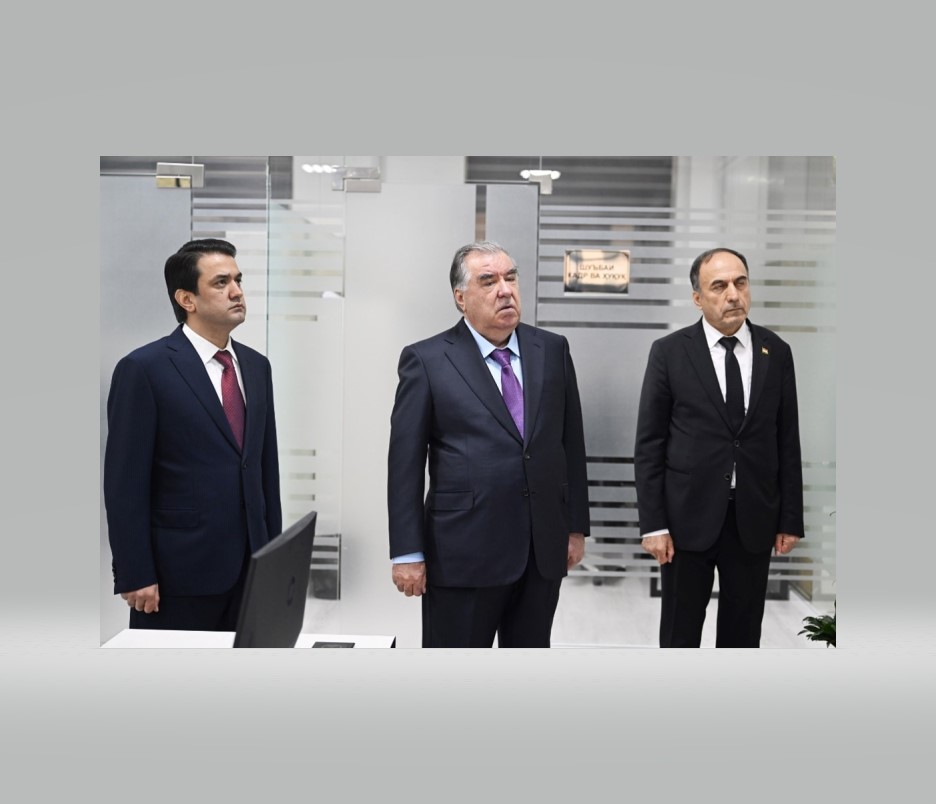Pete Townshend was in his early 20s when he wrote the music and lyrics for The Who’s epic recording “Tommy,” and like many people that age, he had rather romantic notions of rebellion and its social and spiritual potential. The album, released in 1969 and considered one of the first rock operas, was unapologetically, at points almost laughably bombastic — and it has become a cherished, even revered classic.
This reverence was on full display at a recent preview of “The Who’s Tommy,” the collaboration between Mr. Townshend and a veteran musical theater director, Des McAnuff, that had its premiere on Broadway in 1993 and has now returned. Although the new production is also helmed by Mr. McAnuff, who co-wrote the minimal book, it has been described in various reports as “reimagined” — a word that any seasoned theatergoer has learned to regard with trepidation.
Having missed the original staging, which won Tony Awards for its innovative scenic and lighting design — along with for Mr. Townshend’s score, Mr. McAnuff’s direction, and Wayne Cilento’s choreography — I couldn’t make specific comparisons. Yet in interviews, Mr. McAnuff has suggested the central journey of the titular hero of “Tommy” — a “deaf, dumb, and blind kid” who was rendered that way after witnessing a horrific event, and who endures sexual abuse and bullying before becoming a pinball prodigy and then a near-messianic figure — could have renewed resonance in a culture equally obsessed with celebrity and trauma.
The director might have noted the increasingly limited attention span and craving for excess that have accompanied those obsessions, as the new “Tommy” seems to acknowledge both. If The Who’s original work (adapted by classical music and dance companies and for a Ken Russell film before it became a musical) reveled in overstatement, this new staging seems intent, to borrow a line from a famous rock parody, on turning the volume up to 11, along with everything else.
Gareth Owen’s sound design ensures the sheer loudness of the orchestra — playing muscular orchestrations by Steve Margoshes and conductor Rick Fox, with additional arrangements by Ron Melrose — is matched by effects such as the repeated gunshots heard as Tommy’s family endures early trials. Our hero’s dad, Captain Walker, a British soldier, is held prisoner during World War II; Mrs. Walker, thinking him dead, takes another lover, with tragic consequences. There’s also a creepy uncle.
David Korins’s spare set becomes a canvass for Peter Nigrini’s flamboyant projections and Amanda Zieve’s flashy lighting, while Lorin Latarro’s new choreography incorporates goose stepping throughout, presumably to underline — heavily — parallels between Captain Walker’s captors and other characters who will emerge as menacing.
At the matinee I attended, these elements were rapturously received by most of the audience, with a notable exception: Only minutes into the performance, not long after those first simulated gunshots, the voice of a child who could not have been older than 7 interrupted a moment of relative silence. “I don’t like this,” the kid said. “I want to get out of here.”
I don’t know what the parents, or whoever brought the child there, had been thinking, given the show’s subject matter, but I doubt the little one was entirely alone in feeling a bit overwhelmed. Then again, it’s not unusual these days for Broadway attractions to deliver the kind of sensory assaults we used to associate more with arena concerts, or theme park rides. (Take last summer’s entry “Back to the Future: The Musical” — please.)
And since “The Who’s Tommy” is essentially a jukebox musical — more people are coming to hear “Pinball Wizard,” “I’m Free,” and other classic rock staples, surely, than to check out an original take on its core story — Messrs. McAnuff and Townshend could hardly be blamed for wanting to give them as much bang for their buck as possible.
Ms. Lavarro’s frenetic dance routines accommodate the additional energy offered by a game, youthful cast, who under Mr. McAnuff’s guidance find some humanity amid the noise and spectacle. Broadway newcomer Ali Louis Bourzgui brings the right mix of innocence and charisma to the role of Tommy, who at the performance I saw was played at ages 4 and 10 by, respectively, child actors Cecelia Ann Popp and Quinten Kusheba, both sweetly nimble. (Olive Ross-Kline and Reese Levine alternate in the junior parts.)
Adam Jacobs, only a decade removed from playing another male ingénue in Broadway’s “Aladdin,” and Alison Luff credibly convey solicitude — and some ambivalence — as Tommy’s parents, and John Ambrosino and Bobby Conte send out eerie vibes as the uncle, Ernie, and the more casually sinister Cousin Kevin, without allowing either role to tip over into caricature.
The more cartoonish Acid Queen, a gypsy-like figure who promises hallucinogenic and sexual healing, is played by Christina Sajous, who does her sultry best to summon Tina Turner’s memorable screen portrait of the character; if she doesn’t succeed entirely, well, who could?
In fact, I suspect those who have enjoyed previous incarnations of “Tommy” will find much to like here. Just be sure to leave any pre-adolescent children at home.

















Discussion about this post